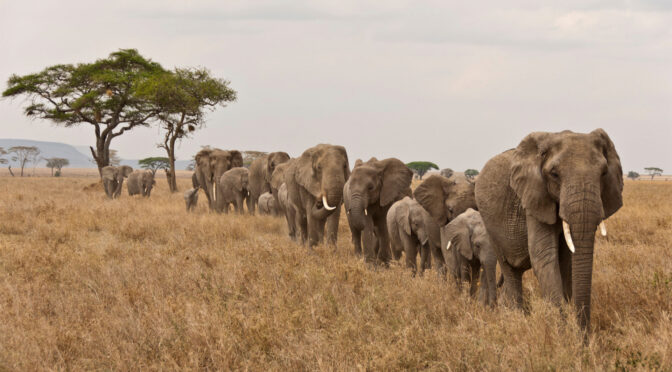Views: 1248
In the second half of the 20th century, African elephants were slaughtered by the tens of thousands under the pretext of halting desertification. These magnificent mammals feed on tree leaves and often break branches to reach their food. An anthropocentric mindset prevailed, blaming wildlife for the degradation of land and vegetation.
This reasoning was used to justify widespread elephant killings. But years later, it became clear that this was a huge mistake. The problem was not the number of animals, but rather the amount of time they spent in the same area—something deeply influenced by human activity, which competes for land and grazing resources.
In the bird world, scientists were once convinced that only males sang and marked territory. It was not until more women entered the field of ornithology—motivated to understand the role of females in bird behaviour—that it was discovered that female birds also sing and assert territorial claims. No one had bothered to look before.
This highlights how our pre-existing mental frameworks shape our understanding of the world, often more than we realize. In the examples above, initial assumptions directed attention in the wrong direction. Today, these mental frames are still widely used—especially to steer public communication toward specific agendas.
We see it daily: the “official version” is often presented as if it had a monopoly on technical legitimacy, while dissenting views are dismissed as political manoeuvring. It’s an old strategy to discredit opposition without addressing the substance.
This tactic is now so entrenched that it’s almost endearing to watch how carefully it’s deployed, like a choreographed relay race. But when a group of experts lends credibility to the critical perspective, it becomes harder to sustain the official frame. In those cases, the dissent is often ignored, hoping it gets lost in the constant flood of news.
Let’s return to wildlife. We know wild animals must be highly equipped to survive—there’s little room for emotion in nature’s brutal economy of birth, growth, reproduction, and death. It’s a world of competition and efficiency.
And yet, we now know that in species like elephants and some whales, post-menopausal females play a vital role. In other words, there are species—beyond our own—where the figure of the grandmother is crucial. These elder females provide support during childbirth and pass on knowledge about food and survival, greatly increasing the young’s chances of survival. Evolution has rewarded their presence. We simply hadn’t looked closely enough.
The scientist who once advocated for mass elephant culling later deeply regretted his actions. He has since devoted his life to showing how desertification can be reversed—with the help of herbivores. Today, he leads an international institute and collaborates with environmental organizations.
Frameworks can be broken. We just have to avoid getting trapped in them.
(This text is an adaptation of the original article published by Miquel Camps, as coordinator of territorial policy for the GOB, in the Menorca newspaper on 14/04/2025).

